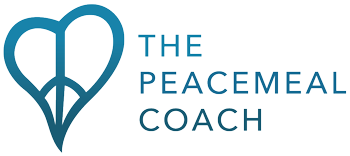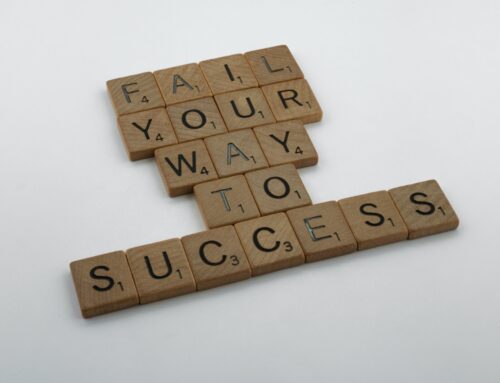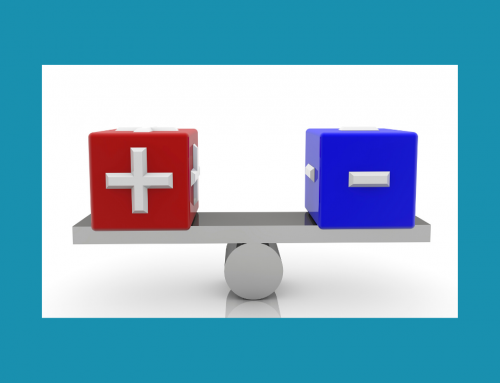
My daughter’s obsession with baking family birthday cakes was one of the earliest signs of an eating disorder, and I didn’t know it. Now I know what I didn’t know back then: I can tell how she’s doing with her eating disorder by watching her bake a birthday cake.
From before anorexia to recovery, her baking behavior provided insight in three important ways:
1. As a symptom before diagnosis;
2. As a sign that her recovery wasn’t stable or she was relapsing; and
3. As evidence that she was improving or recovered.
My daughter’s baking behavior helped me understand anorexia differently. It made more sense than much of what I’ve read in books and heard from experts. It turns out you can learn a lot from a cake. More specifically, you can learn a lot from watching someone bake a cake.
A History of Homemade Birthday Cakes
Before her anorexia diagnosis, my daughter made many of our family birthday cakes. Sometimes she and her older sister worked on them together. They were tasty and beautiful. She got really good at baking and decorating. Before I realized that becoming obsessed with cooking and recipes can be a symptom of anorexia, I noticed that her once fun hobby had become a source of stress for her, and as result, for our whole family.
A Warning I Didn’t Recognize
I remember the summer before we knew she had an eating disorder. She set out to make a special cake for her sister’s birthday. It was a challenging cake to make because it was a cake with a hollow center. It was designed so that when cut into, it revealed wrapped candy. It was like a pinata in the form of a cake. She just knew her sister would love it.
She planned meticulously and shopped carefully. Working diligently to perfect the cake, she painstakingly attended to every detail. Looking back now, it is so clear that the perfectionism she was showing with her preparation of the cake was a warning sign of anorexia. Also a sign we didn’t recognize as anorexia: she didn’t eat what she so conscientiously prepared. She watched us eat it instead.
But, back to the cake. The preparation of this cake took most of the day. She was stressed. Her enthusiasm that greeted the task that morning turned into what looked like panic by the afternoon. She wanted the cake to be just right for her sister. We all reassured her that it was going to be great.
Her mood continued to deteriorate as the day went on, but the rest of us were determined to make the best of her sister’s birthday. We had plans to go to the movies early that evening, and then to return home to celebrate. Unfortunately, my daughter was so wrapped up in the cake (an eating disorder behavior that I didn’t yet recognize) that she had a complete meltdown. She decided she shouldn’t go to the movies and ruin her sister’s birthday just like she ruined her cake.
A Taste of Anorexia
We thought she needed a break from the cake, so we convinced her to go even though she was still very emotional. In hindsight, not a good choice. In reality, no good choice was possible. We thought about cancelling the movie, but decided that was letting her behavior control us. We thought about leaving her at home, but she was so upset that it seemed like a bad idea. So we went. It wasn’t fun. It was like we were all forcing the occasion to be what we wanted it to be, but it was impossible for the birthday to be salvaged.
We didn’t know it at the time, but we had gotten a taste of anorexia and what it can do to sabotage any occasion. Now I know that that is what eating disorders do. It took us a while to put the pieces together, but when we did, it was clear that her eating disorder behavior had been impacting our family long before we knew what was behind the changes in our loved one.
No More Baking
For a couple of years after her diagnosis, I made sure she wasn’t in the kitchen for preparation of meals, and I prevented her from baking. I tried to keep her away from the things that might trigger her while she was recovering. Admittedly, I was protecting myself at the same time. I have bad memories of birthday cakes intended to make someone happy that instead made my daughter very unhappy. The eating disorder caused her to beat herself up for any tiny mistake that meant the cake was less than perfect in her mind.
Because I didn’t yet understand anorexia, I was baffled by her behavior. At that point, the homemade birthday cake became significant in a way that it never had before.
What was once a gesture of love toward someone in honor of their birthday turned into a measure of how much of a grip an eating disorder had on my daughter and on our family.
For a while, I cringed at the thought of her in the kitchen baking a cake. I used to be upset with myself that I wasn’t more educated about eating disorders so I would’ve known the obsession with baking was a sign of anorexia. Since then I have learned a lot about eating disorders. I’ve also decided not to blame myself for not knowing what I didn’t know.
Still, I didn’t want any of us to bake anything in the kitchen for a long time. I decided we could buy a cake or have ice cream instead. Truth be told, I would’ve rather skipped my birthday altogether than to repeat the birthday cake drama.
A Warning I Did Recognize
At some point, she expressed interest in baking again. I was concerned. Even after she was in strong recovery, the first sign of a significant setback was how stressed she got making her sister’s birthday cake. She hated the way the cake looked. We thought it was beautiful. She thought her sister deserved better. We recognized the decline in her mood all too well. She had slipped back into her eating disorder behaviors without us realizing it, until the birthday cake.
Her behavior with the birthday cake was like a red flashing light for us to become vigilant about her eating again after a successful period of independent eating. Luckily, she was able to get back on track again quickly. She increased her food intake. Her mood rapidly improved, and she was able to turn the setback around. I’m grateful for the insight I had this time to recognize her baking behavior as a warning sign.
Taking The Leap
Several months later, I felt like my heart was being squeezed when she decided she wanted to make my birthday cake. Like many times throughout her recovery, I didn’t know what the right answer was. And, like many times throughout her recovery, I had to make a decision and learn by trying something to see if it worked.
In other words, my child’s eating disorder took me to the edge of the cliff more than a few times, and sometimes I decided to jump. It’s scary. It isn’t a clear process. The experts have opinions, but no one can tell you exactly how to best help your loved one. Recovery happens, but it’s a different path for each individual, and it doesn’t happen for everyone.
Doubt
I replayed the past in my mind: Before her diagnosis I failed to recognize her obsession with baking (and not eating) family birthday cakes as a signal of an eating disorder. A couple of years into her recovery, after carefully keeping her out of the kitchen for a long time, I thought she was ready to bake a birthday cake again. She wasn’t. I was filled with doubt.
That’s the thing about eating disorders; they are pervasive. Eating disorders take ordinary things and twist them into complicated problems. They make allowing your child to bake a birthday cake a major parenting mistake.
Who knew baking a cake would be an indication of how well she was (or wasn’t) doing in her recovery?
Fear
As my birthday approached, I was apprehensive. She asked me what kind of cake I wanted. I froze in fear. Did that mean she intended on making it? The memory of the last time she made a family birthday was fresh on my mind. But, the progress she’d made since then provided evidence it would be different this time. I gulped, and then after thinking about it for several seconds, I decided.
“I want carrot cake with cream cheese icing,” I said.
I braced myself throughout the time it took for her to make the cake from start to finish. She found a recipe and shopped for ingredients. Then she meticulously followed the recipe. She expressed concern that the batter seemed thick. She thought the icing could have looked better. As a final touch, she piped roses and sprinkled gold sugar on top.
The Best Birthday Gift
It was the best cake I’ve ever had. It was beautiful, but her cakes are always beautiful. What made this cake so amazing was how different her experience of it was. Everything she does, she does well, but anorexia hadn’t allowed her to see that for a long time. Watching her enjoy making me a birthday cake, something I took for granted before anorexia, meant as much to me as any milestone she’s reached in her recovery.
Before my daughter’s anorexia, I had no idea how meaningful the baking of family birthday cakes would become to me.
My birthday cake reminded me that recovery isn’t just measured by her weight or the way her clothes fit. It is so much more. I know she is better because she smiled. She agreed with us that the cake was really good. She ate a big piece without saying anything about how rich it was, that she might rather have another dessert instead, or that it didn’t taste good. She offered no more criticism about anything. She sat with us and genuinely enjoyed my birthday. She picked out a very thoughtful gift for me, but the best birthday gift I received was sharing my birthday with my daughter and without her eating disorder.





